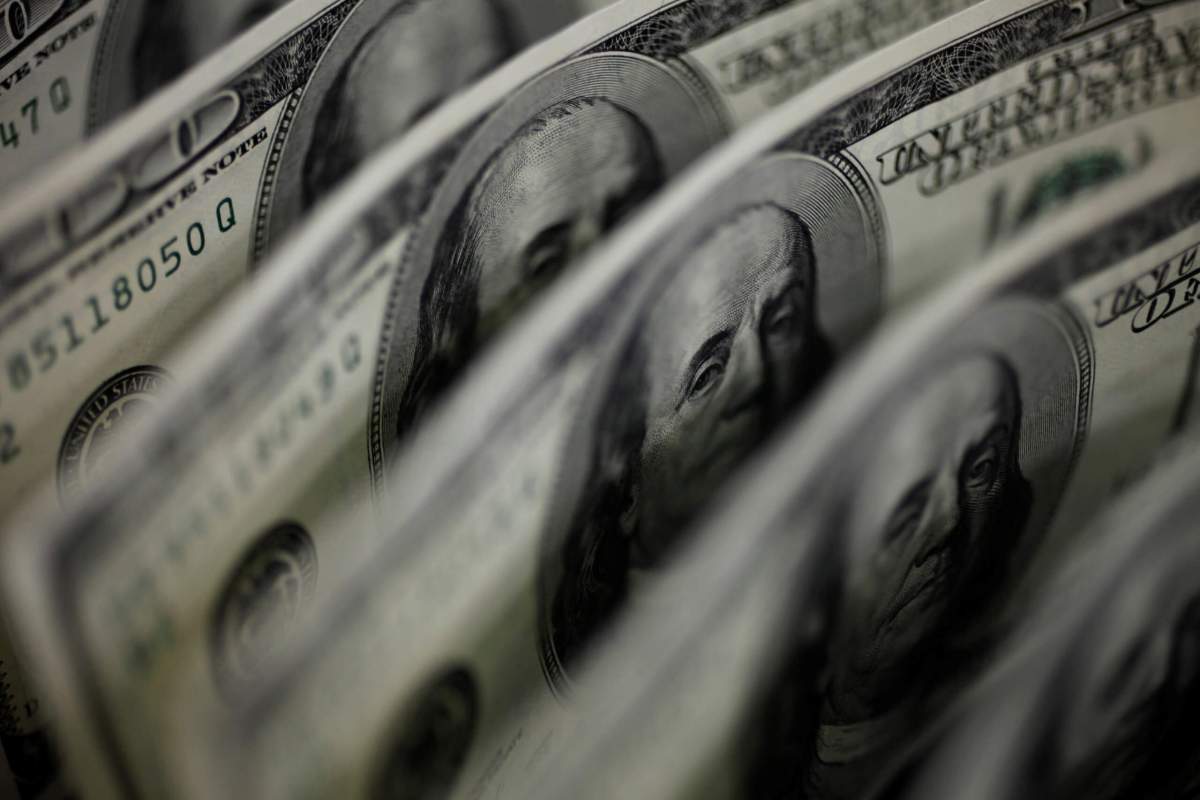By Gertrude Chavez-Dreyfuss
NEW YORK (Reuters) – The U.S. dollar fell from four-week highs against the safe-haven yen and slid versus the Swiss franc on Friday as investors fretted over possible renewed geopolitical tensions between the United States and Iran.
The yen and Swiss franc had fallen from highs hit last week after the United States and Iran, in comments earlier this week, moved away from an all-out conflict.
But concerns grew after the United States imposed more sanctions on Iran on Friday in response to its retaliatory missile attack on U.S. forces in Iraq and vowed to tighten the screws further on the Iranian economy if Tehran continued to engage in what it described as terrorist acts.
U.S. Secretary of State Mike Pompeo, in an appearance at the White House, said he had “no doubt” that Iran had full intention of killing U.S. forces in a missile attack on a base in Iraq in retaliation for the U.S. killing of Iranian commander Qassem Soleimani.
“The fact that the U.S. is still sort of acting aggressively toward Iran and still taking a hard line, helped create demand for safe havens,” said Karl Schamotta, chief market strategist at Cambridge Global Payments in Toronto.
U.S. yields also fell as investors flocked to the Treasury market.
The renewed U.S.-Iran tension came on the heels of a weaker-than-expected U.S. non-farm payrolls report for December.
The soft U.S. payrolls number, which followed a batch of strong economic figures, was still unlikely to sway the Federal Reserve from its current neutral stance.
The dollar pared gains after the jobs data.
U.S. data showed that non-farm payrolls increased by 145,000 last month, lower than market forecasts of 164,000. Data for October and November was revised to show 14,000 fewer jobs added than previously reported. The economy created 2.1 million jobs in 2019, down from 2.7 million in 2018.
More importantly, average hourly earnings rose three cents, or just 0.1%, after increasing 0.3% in November. Markets were expecting a 0.3% rise.
“What it does mean is that the U.S. dollar would be on the defensive,” said Bipan Rai, North American head of FX strategy at CIBC Capital Markets in Toronto. “Certainly, being long dollar has been a popular position for some time so investors would be looking to clear out those positions.”
Against a basket of currencies <.DXY>, the dollar fell 0.2% to 97.30. The dollar index hit a two-week high of 97.584 during the session.
The dollar also eased from a four-week peak against the yen to trade slightly lower on the day at 109.49 yen The greenback also fell 0.1% versus the Swiss franc to 0.9727 (Reporting by Gertrude Chavez-Dreyfuss; Additional reporting by Saikat Chatterjee in London; Editing by David Gregorio and Dan Grebler)



















